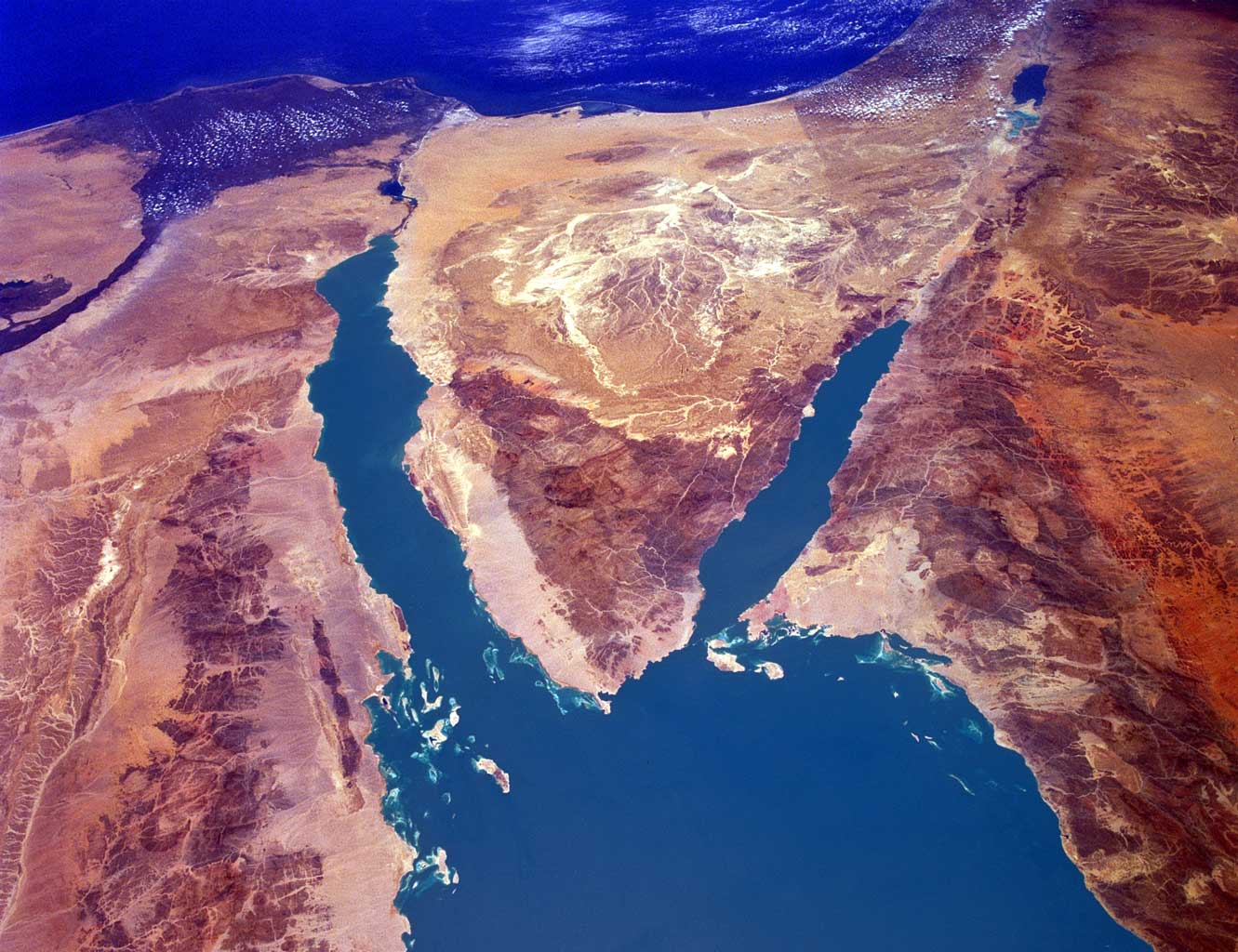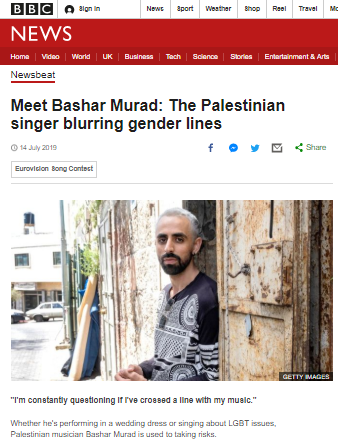After having ignored weeks of preparation for the media-orientated publicity stunt dubbed the ‘Great Return March’ organised by Hamas and other terror factions in the Gaza Strip, early on the morning of March 30th the BBC News website published a report originally titled “Shelling ‘kills Palestinian’ in Gaza” on its main homepage, its ‘World’ page and its Middle East page.
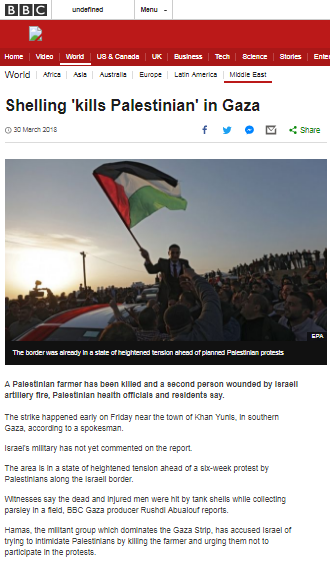
The second version of that report described the headlined incident – which took place before dawn – as follows:
“A Palestinian farmer has been killed and a second person wounded by Israeli artillery fire, Palestinian health officials and residents say. […]
Witnesses say the dead and injured men were hit by tank shells while collecting parsley in a field, BBC Gaza producer Rushdi Abualouf reports.”
The claim that the man had been “collecting parsley” was seen in a further fifteen versions of the report. In version three the BBC added the statement “The Israeli military said a tank had fired at two suspects after suspicious activity near a security fence” but failed to clarify that the location was actually the border fence between the Gaza Strip and Israel.
Several earlier versions of the report included comment from the BBC World Service Middle East editor Sebastian Usher who, while clarifying that Hamas is among the organisers of the publicity stunt, failed to adequately explain its aims and background to readers.
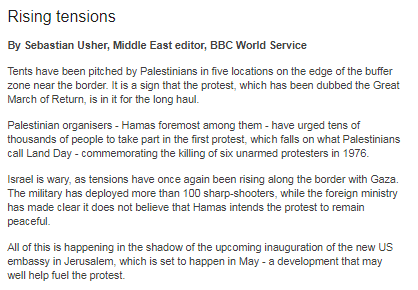
Under the sub-heading “What is the protest about?” later versions of the report erased any mention of Hamas’ role in the organisation of the stunt.
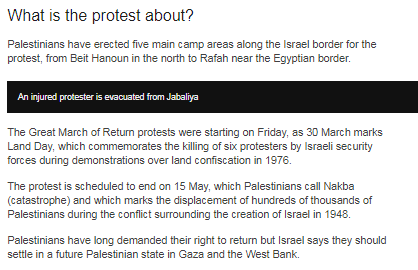
No effort was made to clarify to BBC audiences that the Palestinian demand for ‘right of return’ is at odds with the two-state solution proposal which the BBC has repeatedly told its audiences in the past is the “declared goal” of “the international community”. Neither was it clarified that the aim of that demand is to threaten the existence of Israel as the Jewish state.
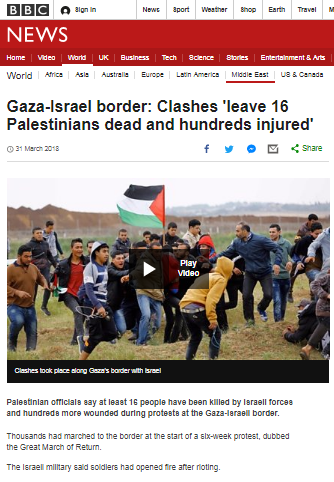
The last four versions of the report – now titled “Gaza-Israel border: Clashes ‘leave 16 Palestinians dead and hundreds injured’” – included an insert that was originally dubbed “analysis” from the BBC Gaza office’s Rushdi Abu Alouf.
BBC audiences were told that the violent rioting seen along the border between Israel and the Gaza Strip on March 30th is linked to “difficult economic conditions and the Israeli blockade” rather than agitprop initiated and organised by terror factions.
Notably, while erasing the numerous border infiltrations that have recently taken place (and went unreported by the BBC) from audience view, Abu Alouf breached BBC editorial guidelines on impartiality by opining that “this time Israel’s response was exaggerated”. Readers were also told that Palestinians who “throw stones at the soldiers” are engaged in “peaceful demonstrations”.
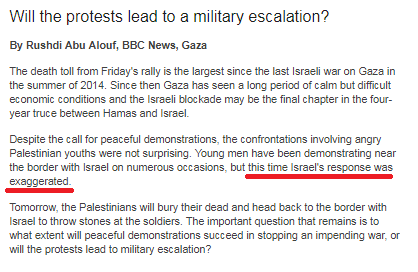
That, apparently, is the level of ‘analysis’ the BBC had to offer its audiences while failing to adequately explain to them that this pre-planned publicity stunt was conceived and organised by assorted terror factions, that Hamas is reportedly financing it to the tune of $10 million and that its aim is to create photo-ops which – in the words of the organisers – “the whole world and media outlets would watch”.
Related Articles:
Hamas agitprop requires BBC journalists to brush up on UN resolution
British connections to upcoming Gaza agitprop ignored by BBC News
BACKGROUNDER: The Palestinian Claim to a “Right of Return” (CAMERA)


